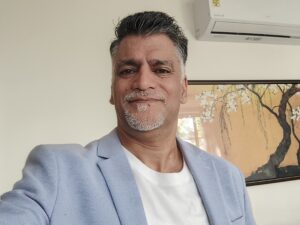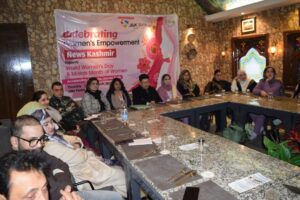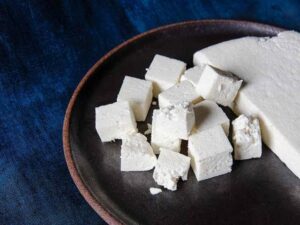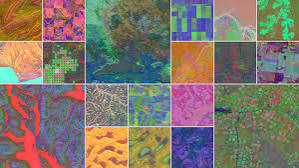Silence falls on a Young Life: How a lost Sound Processor stilled Numaan’s world
Mohammad Hanief
Father’s Diary
In the serene beauty of Harwan Garden, where the laughter of children usually mingles with the rustle of trees, a sudden silence descended for ten-year-old Mohammad Numaan. A Class 3rd student at Legends School of Education, Sadrebal, Numaan lost the sound processor of his cochlear implant during a family outing — an incident that, in an instant, stripped him of the voices, music, and everyday sounds that had once filled his world. What for others might seem like a misplaced gadget has, for him, become a profound loss, affecting not just his hearing but his education, friendships, and daily life.
For most people, sound is a constant backdrop — the call of a parent, the greetings of friends, the clatter of a busy street. For Numaan, born with profound hearing loss, these sounds became part of his life only through the marvel of modern medicine. His cochlear implant — a combination of an internal surgical component and an external sound processor — serves as his bridge to the world of sound.
The internal implant rests securely beneath his skin, but the sound processor, worn externally, is the lifeline that captures noises, processes them, and transmits them to the internal component. Without it, there is only silence. On that afternoon in Harwan Garden, as he ran and played among the flowers and pathways, this vital link somehow came loose and vanished.
From that moment, the lively soundscape that accompanied his life was gone. Where there had been birdsong, children’s laughter, and the voices of his family, there was now stillness. Communication shifted instantly to a world of lip-reading, gestures, and guesswork. Even at home, where surroundings are familiar, the absence of sound can feel isolating and disorienting.
The loss has hit his education particularly hard. In a primary school classroom, learning is built on listening — following the teacher’s explanations, joining discussions, and responding to spoken instructions. Without his sound processor, Numaan cannot participate fully in oral lessons. Teachers at Legends School of Education have stepped in to adapt, using written instructions, visual aids, and extra one-on-one time. But the natural rhythm of interactive learning is interrupted.
There are social challenges too. During breaks, children chatter, call each other to games, and share jokes. Many games depend on sound — clapping patterns, calling out in hide-and-seek, or reacting to a shouted instruction. Without hearing these cues, Numaan is at risk of missing out. His classmates, aware of the situation, are making efforts to include him through visual signals and gestures, but the spontaneity of play is harder to maintain.
For a child who has been hearing with assistance for years, sudden silence is not something the brain adjusts to easily. It can lead to moments of confusion, frustration, and sadness. For Numaan, the change has meant extra effort to keep up with lessons, more concentration to read lips, and an increased need for support from both teachers and family. These adjustments, while necessary, are physically and mentally tiring for a child.
The effects extend beyond the classroom and playground. At home, casual conversation now requires eye contact and slower, clearer speech. Everyday background noises — the clang of utensils, the hum of appliances, the call to dinner — no longer reach him. Safety awareness is also affected, as he cannot hear approaching vehicles, alarms, or other warning sounds.
Therapy sessions, which play a crucial role in the development of speech and listening skills for cochlear implant users, have also been disrupted. These sessions rely heavily on hearing exercises and auditory feedback, which are impossible without the processor. While therapists can still focus on visual and speech articulation exercises, the progress made through regular auditory practice is paused.
The loss of the processor also highlights the vulnerability of such assistive technology. It is a device no bigger than a small matchbox, yet it carries the weight of a child’s access to spoken language, learning, and social interaction. One accidental loss can bring life to a standstill in ways that those without hearing challenges may never imagine.
In response to the incident, teachers, classmates, and family members have rallied to ensure that Numaan does not feel left out. In class, peers sit beside him to help with written notes. Teachers adapt their methods to include more visual demonstrations. Friends on the playground use hand signals and facial expressions to invite him to join games. This collective support has softened the blow, showing that communication can transcend spoken words when necessary.
Even so, the days without sound have been a reminder of the central role hearing plays in a child’s sense of belonging and confidence. For Numaan, regaining his processor will mean more than just hearing again — it will be the return of his independence in learning, his ease in conversations, and his full participation in the joyful noise of childhood.
Until that moment arrives, the world remains quieter for him. But within that quiet, there is also resilience — the resilience of a young boy adjusting to challenges, of teachers and classmates adapting their communication, and of a family ensuring he stays connected to the life he loves. The incident at Harwan Garden may have stilled his world for now, but the bonds of understanding and support around him ensure that silence does not mean isolation.
In the end, Numaan’s story is not just about the loss of a device. It is about the fragile but profound link between technology and the human experience, about the ways in which sound shapes learning and relationships, and about the compassion that emerges when a community comes together to bridge the gap left by silence. For those who know him, the hope is simple and strong — that soon, the gentle click of a new sound processor will bring back the voices, laughter, and music that make his young life complete.
The author can be mailed at m.hanief@gmail.com
X/Twitter: @haniefmha

 ment comes, it is taken from her hands,sometimes with love, sometimes with authority, and she is left with little more than the pride of her craft. She is the maker of value, yet not the owner of it.A woman without financial knowledge may be left without savings, without a safety net, and without the ability to navigate the banking system. But when she knows how to manage money, she gains the courage to make choices for herself and her family.A financially literate woman in Kashmir is not just someone who can calculate profits from selling her handicrafts, she is someone who can plan for her children’s education, invest in her own business, and face life’s uncertainties with confidence.
ment comes, it is taken from her hands,sometimes with love, sometimes with authority, and she is left with little more than the pride of her craft. She is the maker of value, yet not the owner of it.A woman without financial knowledge may be left without savings, without a safety net, and without the ability to navigate the banking system. But when she knows how to manage money, she gains the courage to make choices for herself and her family.A financially literate woman in Kashmir is not just someone who can calculate profits from selling her handicrafts, she is someone who can plan for her children’s education, invest in her own business, and face life’s uncertainties with confidence.
